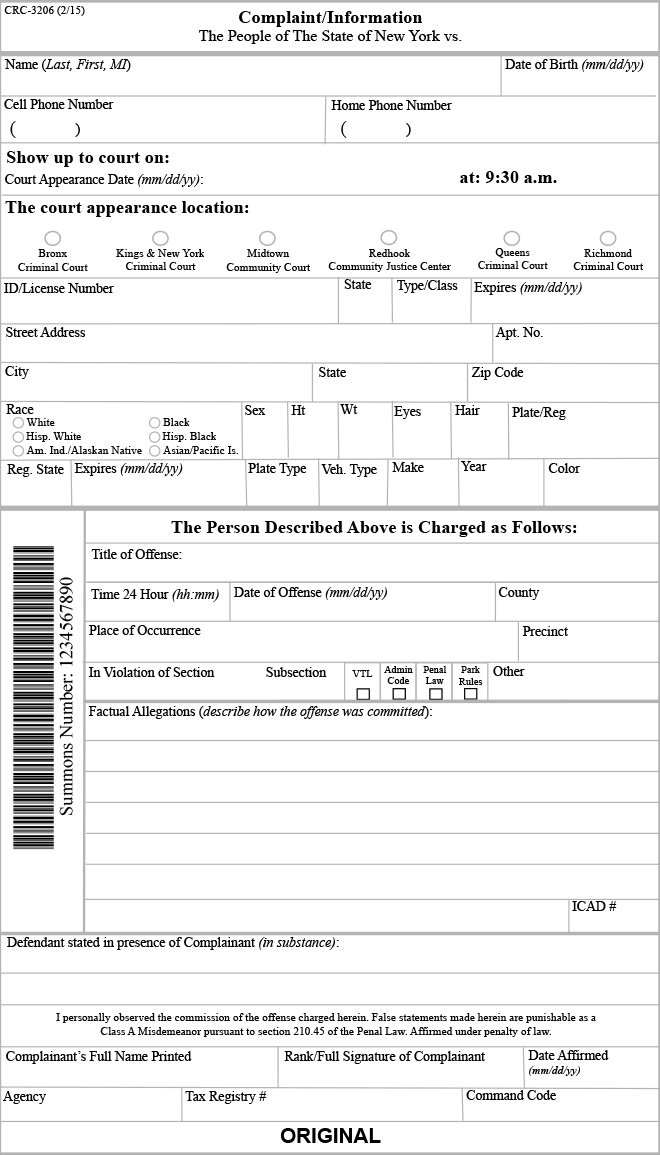Is Paperwork Standing Between You and Justice?
By:
New York City's jails are overcrowded with people awaiting trial.
Before they've been found guilty or innocent, people are spending months sitting in jail just waiting for their day in court. The situation is costly, unfair, and preventable. It's also driven by two forces that seem unrelated, but may actually be two sides of the same coin: bias and bureaucracy.
There is a huge backlog of summonses in New York City. Summonses are tickets that require a court appearance, generally issued for infractions more serious than a traffic ticket (which can be paid by mail), but not so serious it warrants arrest. But when people fail to appear in court to respond to a summons, a warrant is issued for their arrest. This makes the backlog even worse.
The city is taking strides to address both issues by reforming its approach to summonses. They will be collecting demographic information on tickets and studying them to determine if there is prejudice or bias contributing to the over-issuing. They will also attempt to reduce the amount of failures to appear by reminding people of their court dates with robocalls and text messages and also allowing for more flexibility for when people can appear in court. Additionally, more summonses can be handled without a court date, including summonses for minor marijuana infractions.

Summonses are supposed to deter crime, but they don't.
The over-issuing of summonses is a part of the theory of "broken windows policing," which is the idea that punishing people for every single minor infraction will be deter them from committing bigger crimes. In other words, giving people a ticket when they play loud music will stop them from robbing a bank.
Except for two things: it doesn't work, and it's mostly done in poor communities (typically poor communities of color) where it is more likely to back fire. That's because summonses come with fines, and if you're already poor and unable to pay the fine, it might lead you to illegal action that you might not have taken otherwise, whether it's robbing a bank or simply not showing up for court because you know you can't pay. If you don't show up to court, a warrant is issued for your arrest, and you will end up either in jail awaiting trial (and probably losing your job), or spending a lot of money on bail -- creating a cycle of debt that further puts a disproportionate burden on the poor communities that are being targeted.
The other option is to plead guilty, which can lead to a host of new problems, including a loss of employment or social services.
Reforming the process won't solve over policing.
The new, welcome reforms will do nothing to affect the backlog as long as police officers continue to over-issue summonses in poor and minority communities. This is why the city is also implementing the use of a demographic box on the new summons. Previously, there had not been racial data regarding summons issuance. Journalists and citizens, however, have noticed that poor people of color are disproportionately issued summons for minor infractions (drinking publicly, loud music, jaywalking, etc.). Collecting demographic information on the summons will help the city determine if there is racial bias in summons issuing.
Paper work is a big deal.
Just changing the paper work and creating an online payment portal may not seem like a big deal, but it is. Racially based discrimination doesn't persist solely because of individual bias, it also persists because institutions and infrastructure are set up in a biased way. Hopefully, this process will lead New York City to transform the summonses process even further and serve as an example to the rest of the country.
